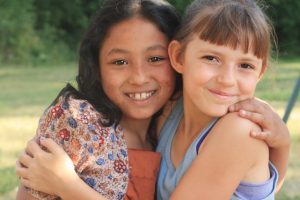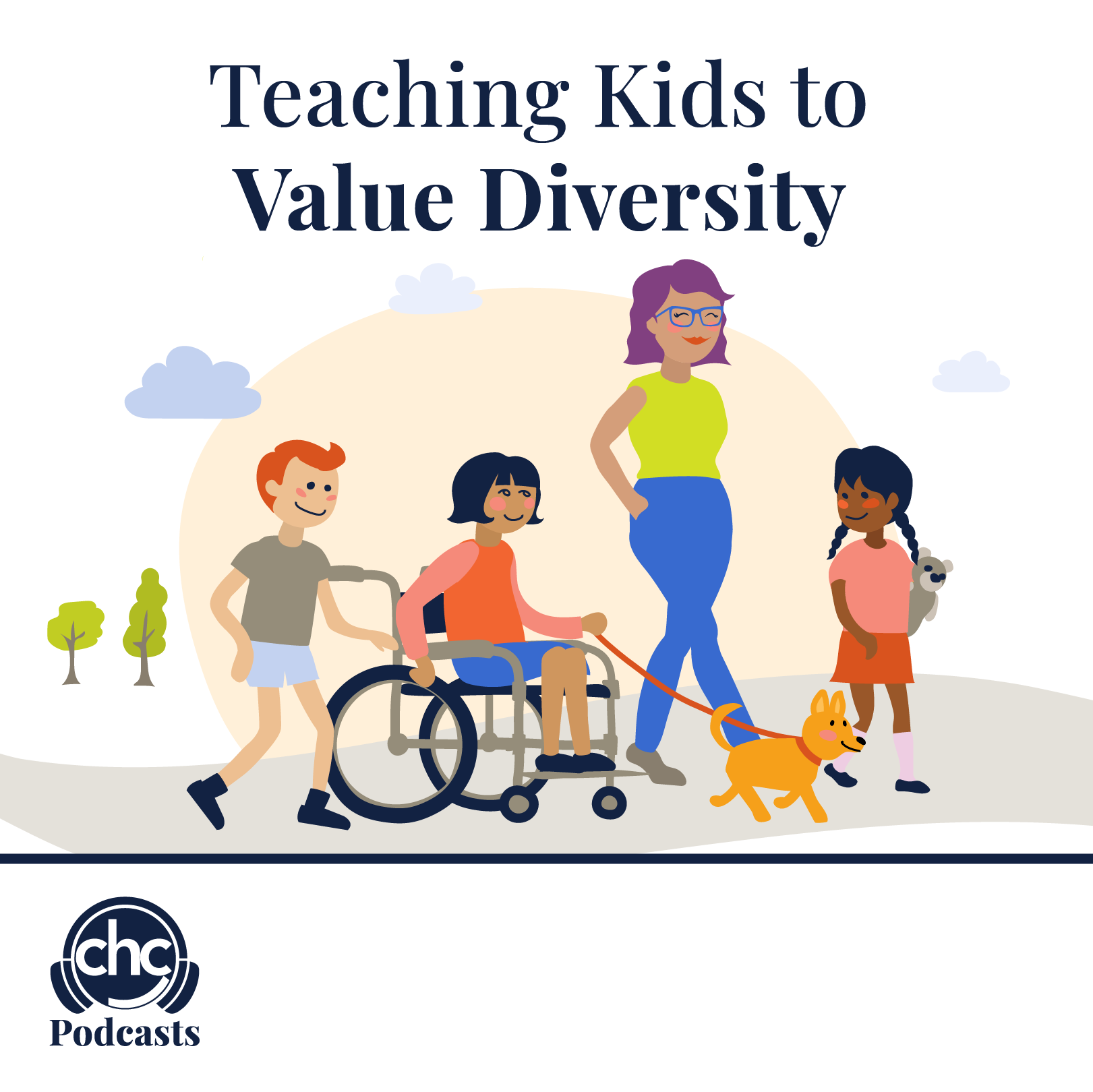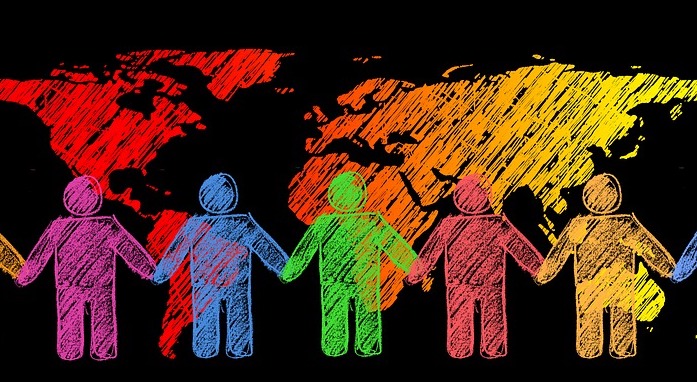How to Talk to Kids About Race and Cultural Diversity
 Here’s the beautiful thing about kids—most are born with a natural sense of justice and fairness. Unless they are taught to be hurtful and cruel, most children know that it is wrong to attack others either physically or with words.
Here’s the beautiful thing about kids—most are born with a natural sense of justice and fairness. Unless they are taught to be hurtful and cruel, most children know that it is wrong to attack others either physically or with words.
As a parent or caregiver, it is important for you to nurture this natural love of people. Here are some things to keep in mind as you talk to your child about the value of differences.
Start By Examining Yourself
If you are uneasy or uncomfortable around people of different backgrounds, your child will pick up on it and emulate this in their interactions. Also, consider the way you talk about people or describe them. Do you mention their race first rather than other characteristics?
Think about the messages you are sending through your everyday words and actions. Be honest with yourself about where you need to improve. It is common for people to assume they are accepting, but then use words or actions that say something else.
Teach the Value of Racial and Cultural Diversity
School age kids will learn about other cultures, both past and present, in the classroom. They will likely have friends and classmates who come from different ethnic or racial backgrounds.
“Diversity education is an ongoing lesson that you teach your child through open conversations but it’s also something you model by being tolerant and providing opportunities for your kids to be around people who are different from them,” says Hailey Shafir, LCMHCS, LPCS, LCAS, CCS, a licensed professional counselor who specializes in family support, relationships, race and cultural diversity, and mental health for young people.
Encourage Your Child to Ask Questions
If your child has questions about differences in physical characteristics or cultural practices, discuss them openly. A school-age child may ask about the color of someone’s skin or why some people who are from different regions of the world might look different from each other. Children this age are expanding their knowledge of the world, and questions like these are normal.
Talking about different cultures, customs, and races as well as answering any questions they have, teaches your child that it is OK to notice differences. More importantly, it teaches them that it’s good to talk about these differences.
See the Broader Value of Teaching Acceptance
Learning to appreciate all kinds of differences—not just racial and cultural but also differences in socioeconomic levels, gender, and abilities—is an important skill in today’s diverse society. Children should be taught to value others and treat everyone with kindness and compassion.
Discuss Images in the Media
Take notice of what media you are exposing your children to. Discuss negative stereotypes and ask your grade-schooler why these are unfair or wrong. Talk about what racism is and how it can have a negative effect on our lives.
“Parents need to understand that kids and teens are constantly exposed to racialized information and content online, in school, and in the media,” says Shafir. “Asking kids what they’re learning, reading, or watching and initiating open conversations about what their views are is a good way to understand what they’re being exposed to while also creating opportunities for teachable moments.”
Excerpted from “How to Talk to Kids About Race and Cultural Diversity” from VeryWell Family. Read the full article online.
Source: VeryWell Family | How to Talk to Kids About Race and Cultural Diversity, https://www.verywellfamily.com/teaching-kids-about-race-and-cultural-diversity-621099 | Ⓒ 2022 Dotdash Media, Inc.
Do you need someone to talk to? To schedule an evaluation or to get advice about your child’s or teen’s challenges, call or email a CHC Care Coordinator at 650.688.3625 or careteam@chconline.org CHC teletherapy services are available now.





